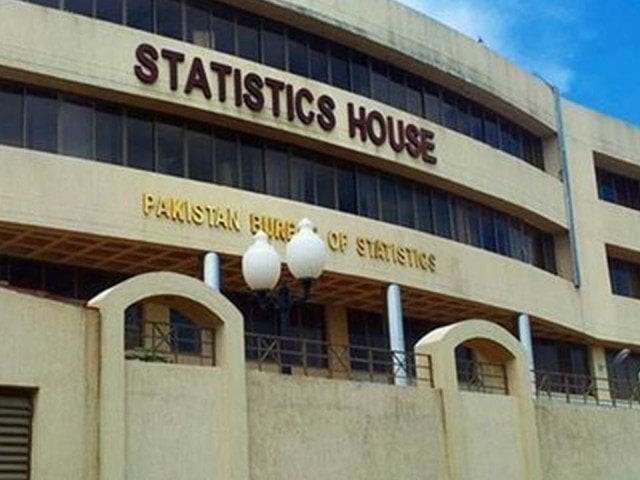LSM growth drops 5.9% in July-September FY20
Highlights concerns about further rise in unemployment and poverty in the country

PHOTO: PAKISTAN BUREAU OF STATISTICS
The Pakistan Bureau of Statistics (PBS) reported on Friday that the Large-Scale Manufacturing (LSM) output decreased 5.91% in July-September quarter of the current fiscal year compared to the same period of the previous year.
Owing to the poor output, the share of LSM in the total national output plunged to a 19-year low at 10.1%.
Out of 15 major industries, nine big industries recorded negative growth while the textile sector again had less than 1% growth in output, according to PBS. In September alone, the LSM sector contracted 5.63% over the same month of the previous year, according to the PBS.
Despite slowdown, the State Bank of Pakistan (SBP) on Friday kept its key policy rate unchanged at 13.25% as against the directions of Prime Minister Imran Khan.
But Adviser to Prime Minister on Finance Dr Abdul Hafeez Shaikh said on Friday that the government would surpass its 2.4% annual economic growth target. "We will achieve over 3.5% economic growth rate in this fiscal year," said Shaikh while speaking at The Express News show, The Review.
The international financial institutions have projected 2.4% gross domestic product (GDP) growth rate for the current fiscal year, which is equal to the population growth rate and less than the pace in the last fiscal year. Low growth means there will be an increase in unemployment and poverty.
The recent economic data suggests that economic activity is strengthening in export-oriented and import competing sectors while inward oriented sectors continue to experience a slowdown in activity, stated the central bank in its handout. It added specifically, large-scale manufacturing (LSM) shows gains in electronics, engineering goods and fertilizer sectors and decline in auto, food, and construction allied industries of steel and cement.
But the continued slump in large industries, which heavily contribute to the government's revenue collection, job creation, and poverty reduction efforts, has affirmed the apprehension that the country is going to pass through a prolonged economic slowdown.
Prime Minister Imran Khan won the July 2018 elections on the promise of creating 10 million new jobs and constructing five million houses at affordable prices - a dream shattered at the end of the first year of the Pakistan Tehreek-e-Insaf (PTI) government.
Shaikh on Friday remained non-committal about the promise of facilitating creation of 10 million jobs.
Of the 15 major LSM sectors, six registered some growth and nine saw a contraction in the July-September period of this fiscal year, according to data released by the national statistics agency.
Data collected by the Oil Companies Advisory Committee (OCAC) showed that 11 types of industries registered on average 0.9% negative growth in the first three months of the current fiscal year.
The Ministry of Industries, which monitors 15 industries, reported a 3.72% decline in the growth of these industries. Similarly, the provincial bureaus reported about 1.2% contraction in 11 industries in the first quarter.
Sectors that posted growth on an annual basis included textile which grew just 0.17%, fertiliser exhibited 16% growth and electronic goods recorded 5.5% growth in the first three months of the current fiscal year. Manufacturing of engineering products increased 12.5%, rubber products 2.3% and leather products 4.2% during the July-September period.
Industries that were producing nine major types of goods recorded a dip in their manufacturing in July-September 2019. The production of food, beverages, and tobacco went down 8%, coke and petroleum products 14.5%, pharmaceuticals 12% and chemicals 8.3%.
Published in The Express Tribune, November 23rd, 2019.
Like Business on Facebook, follow @TribuneBiz on Twitter to stay informed and join in the conversation.



















COMMENTS
Comments are moderated and generally will be posted if they are on-topic and not abusive.
For more information, please see our Comments FAQ